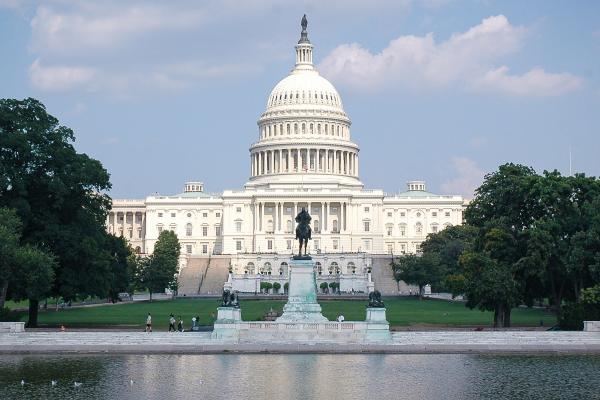Perspectives on Complex Litigation
691 total results. Page 14 of 28.
Effective April 17, 2020, additional temporary rules have been added to the California Rules of Court in response to COVID-19.
The case reveals the Trump administration’s express recognition of the importance of the bureau’s work and highlights the declining ability of companies to challenge bureau investigations on constitutional grounds.
A Maryland federal District Court Judge declined to issue an emergency temporary restraining order on April 13, which was intended to remove eligibility restrictions put in place by Bank of America under the Coronavirus Aid, Relief, and Economic Securities Act’s Paycheck Protection Program.
Zoom Video Communications, the remote conferencing service whose usage has surged during the COVID-19 pandemic, has been sued in California federal court in two putative class action cases alleging, among other claims, violations of users’ privacy rights under the California Consumer Privacy Act.
To sustain essential court services in California state courts, the Judicial Council, headed by Chief Justice Tani Cantil-Sakauye, announced the adoption of Emergency Rules to the California Rules of Court, to immediately go into effect as of April 6, 2020.
In today’s episode, we talked with Barbara Wahl about “Force Majeure” and possible defenses that may be available to avoid performance under a contract due to Coronavirus and the Government Orders related to the pandemic.
In this webinar, members of Arent Fox’s COVID-19 Task Force provide an overview of Force Majeure and Related Common Law Principles. This includes analysis of the enforcement of force majeure, issues surrounding neutralizing key clauses, and critical bankruptcy questions.
On March 30, 2020, the US District Court for the District of New Jersey affirmed an award of spoliation sanctions, forensic audit, and attorney’s fees in favor of Arent Fox client Sabinsa Corporation.
The result of such denials was not just academic; as a practical matter, they have paved the way forward for the Bureau to continue its investigatory work over the constitutional objections asserted by regulated entities.
If history is any guide, the ongoing coronavirus pandemic will provide many opportunities for fraudsters to separate the desperate and vulnerable from their money and personal information.
The typical path for the Antitrust Division of the US Department of Justice when it determines that a contemplated merger is anticompetitive is to sue in federal court to block the merger.
As the COVID-19 pandemic reaches further into all corners of the United States, a bevy of federal, state, and local emergency orders aimed at slowing the outbreak’s spread continues to impact an increasing number of industries and workers.
International Co-Leader and Litigation Partner Malcolm McNeil participated in a 3 part online series on coronavirus-related business and legal developments hosted by the Beverly Hills Bar Association.
Civil litigation is a highly deadline-driven activity – statutes of limitation, discovery responses, notices of appeal. The “use it by a date certain or lose it” nature of all of these deadlines pushes the wheels of justice forward, steadily, if sometimes slowly.
Last year, the Eleventh Circuit affirmed a judgment holding that a landlord’s constructive knowledge of its tenant’s trademark infringement is enough to hold the landlord liable.

The Consumer Financial Protection Bureau (Bureau) seeks industry feedback and public comment on various aspects of the remittance rule (Rule), which implements Section 1073 of the Dodd-Frank Wall Street Reform and Consumer Protection Act (Dodd-Frank Act).
Arent Fox is pleased to announce that Partner Bernice K. Leber was selected as one of 100 New Yorkers included in the “2020 Notable Women in Law” special feature published by Crain’s New York Business.
Schiff Hardin LLP is pleased to announce that 88 attorneys have been named to the 2020 Leading Lawyers list.
Schiff Hardin LLP is pleased to announce that seven attorneys have been named to the 2020 Emerging Lawyers Network, which comprises attorneys who have demonstrated themselves to be professional, ethical, and experienced at an early stage in their legal career.

California is poised to join the growing cadre of states enhancing their consumer financial protection functions in response to perceived decreasing federal oversight and enforcement under the Trump administration.
The Committee on Rules of Practice and Procedure of the Judicial Conference of the United States recommended changing Federal Rule of Civil Procedure 30(b)(6) to require parties to confer in advance about the matters for examination. The amendment is expected to take effect on December 1, 2020.
The Consumer Financial Protection Bureau (the Bureau) recently issued an official policy statement (Policy) that illuminates how the Bureau will apply the Dodd-Frank Wall Street Reform and Consumer Protection Act’s (Dodd-Frank Act) provision outlawing “abusive acts or practices.”
The Federal Trade Commission (FTC) announced upward revisions to the jurisdictional thresholds for premerger notification filings under the Hart-Scott-Rodino (HSR) Act last week.
Questioning your own witness while defending a deposition is a rare practice. A recent decision out of California’s Second Appellate District will require attorneys to consider doing so more often, especially in repeat cases involving warranty issues or toxic torts.